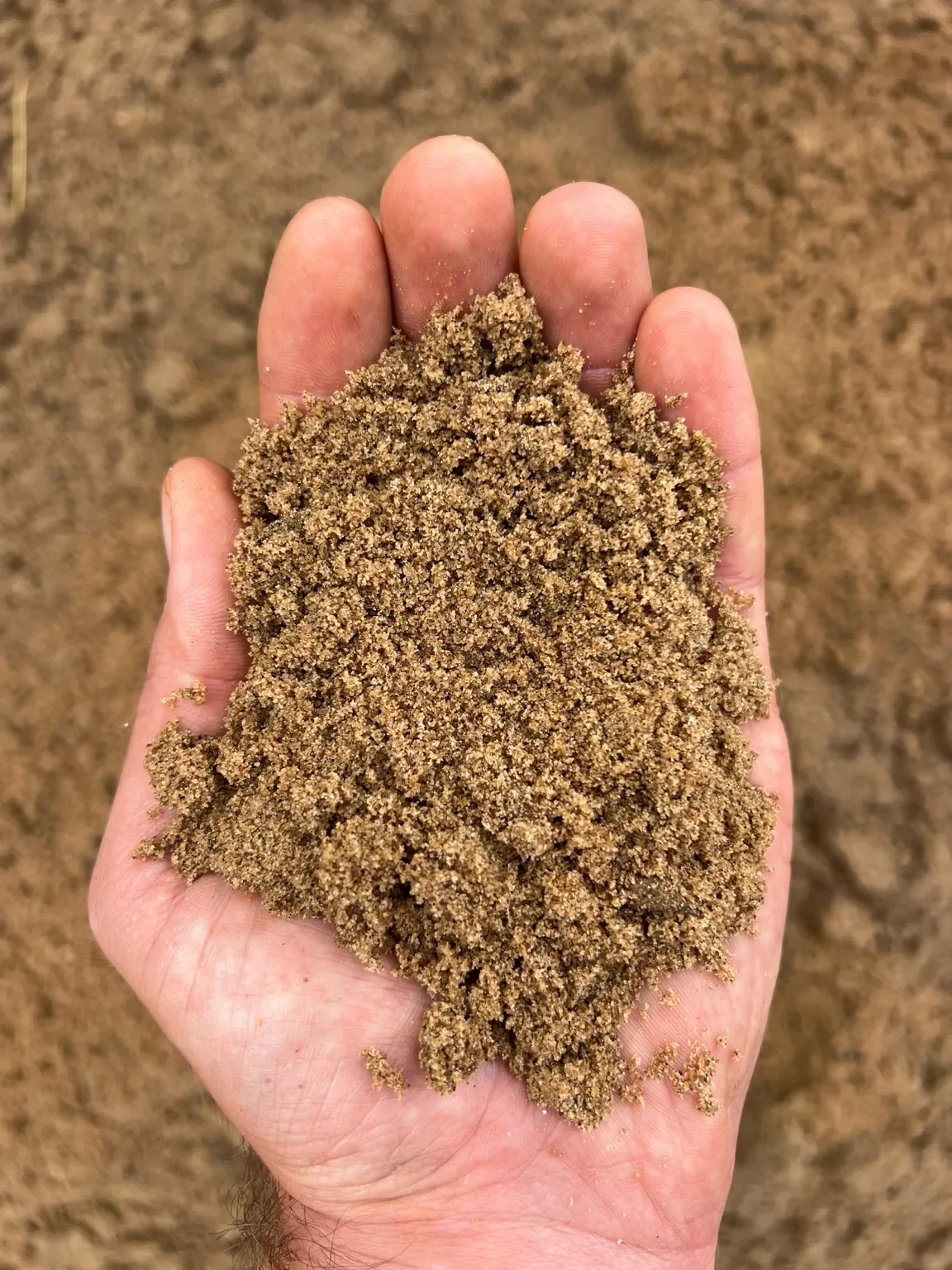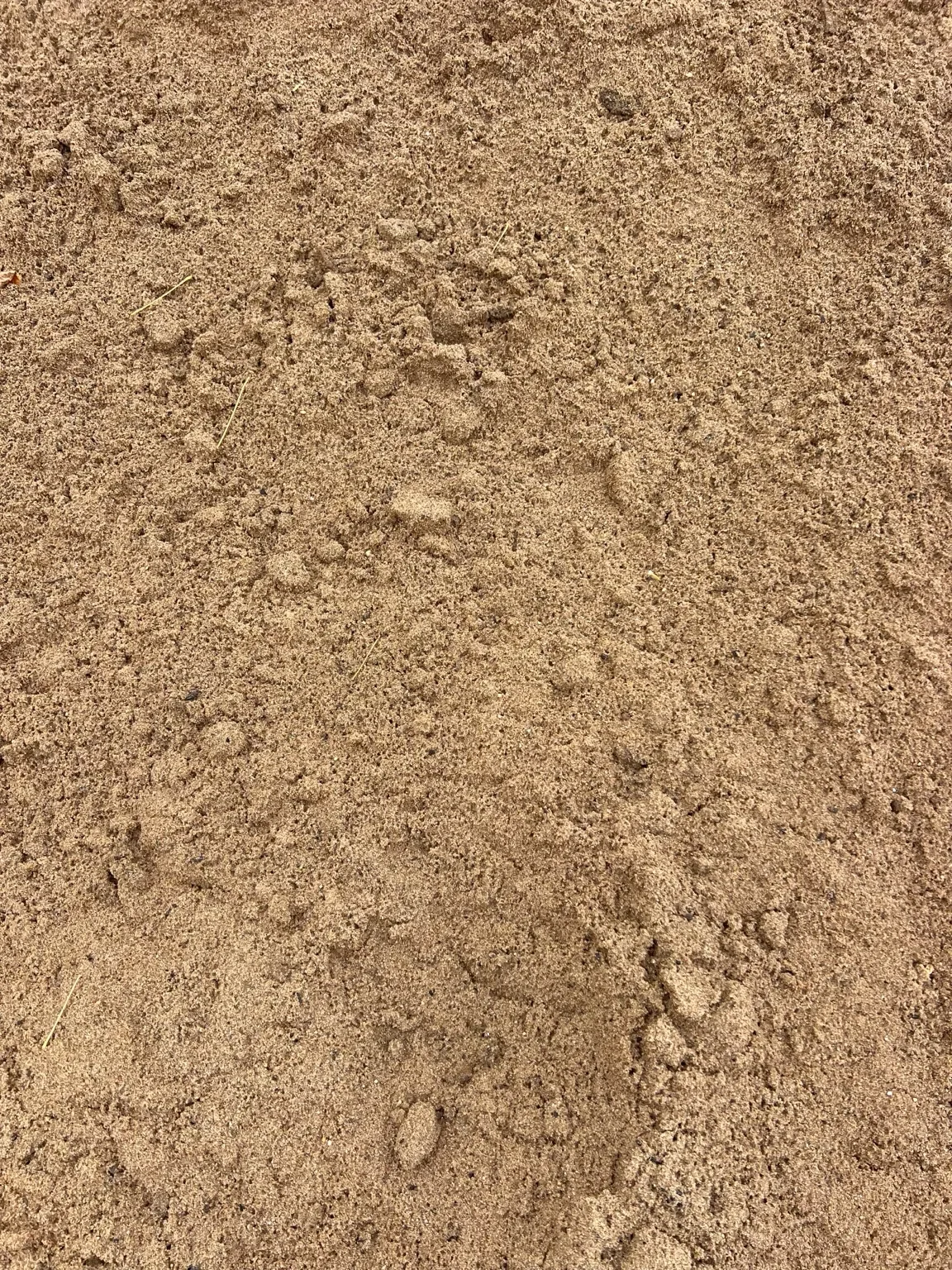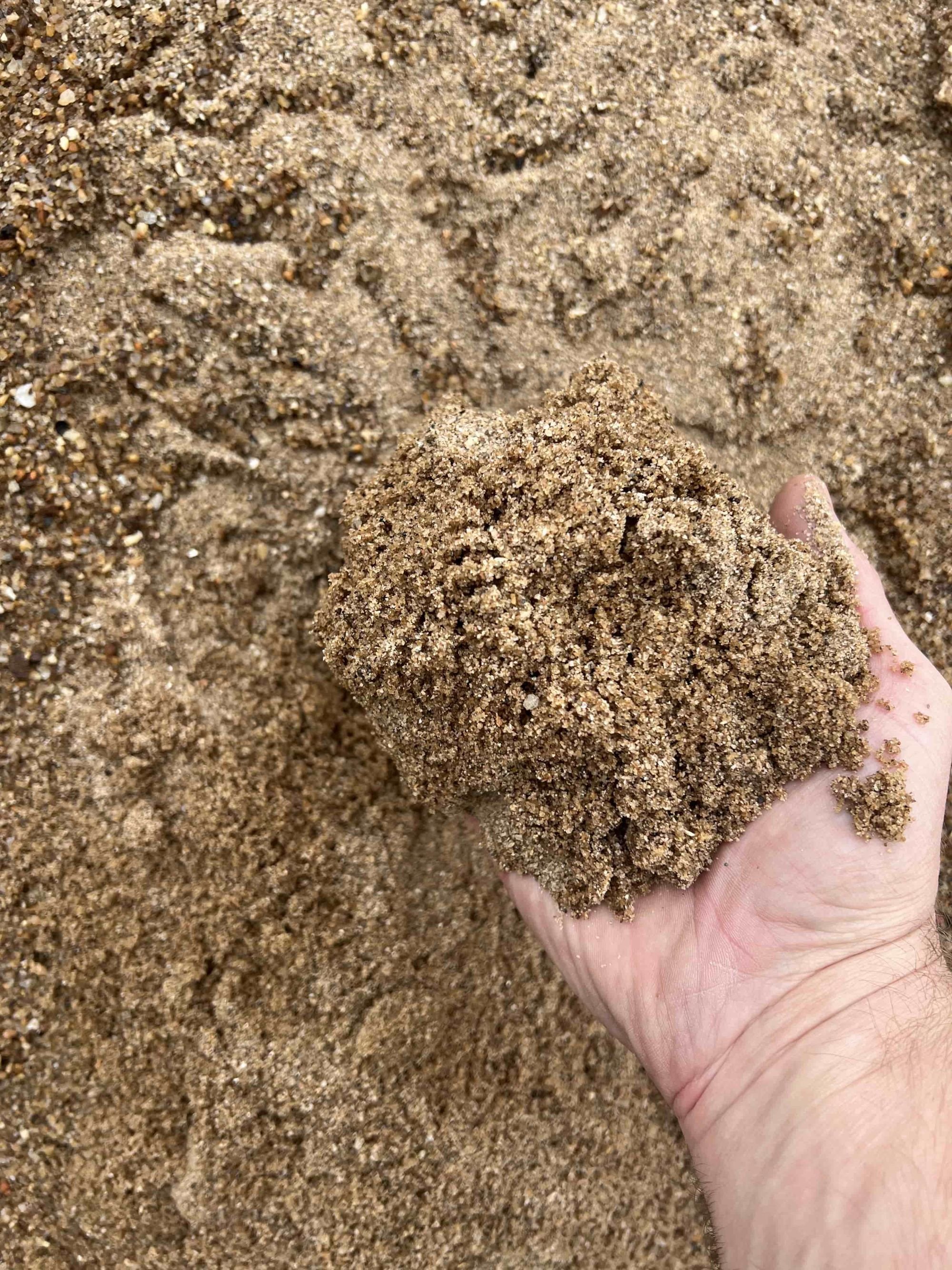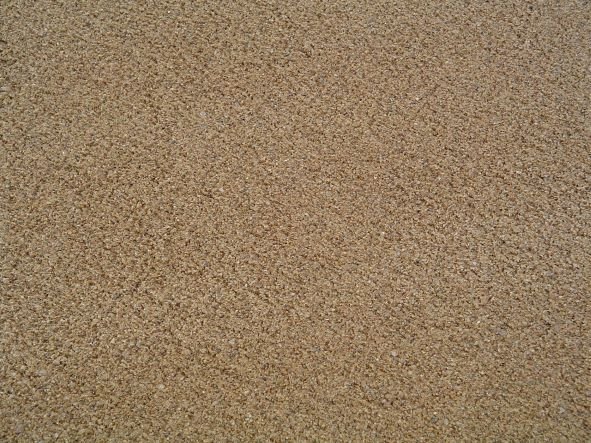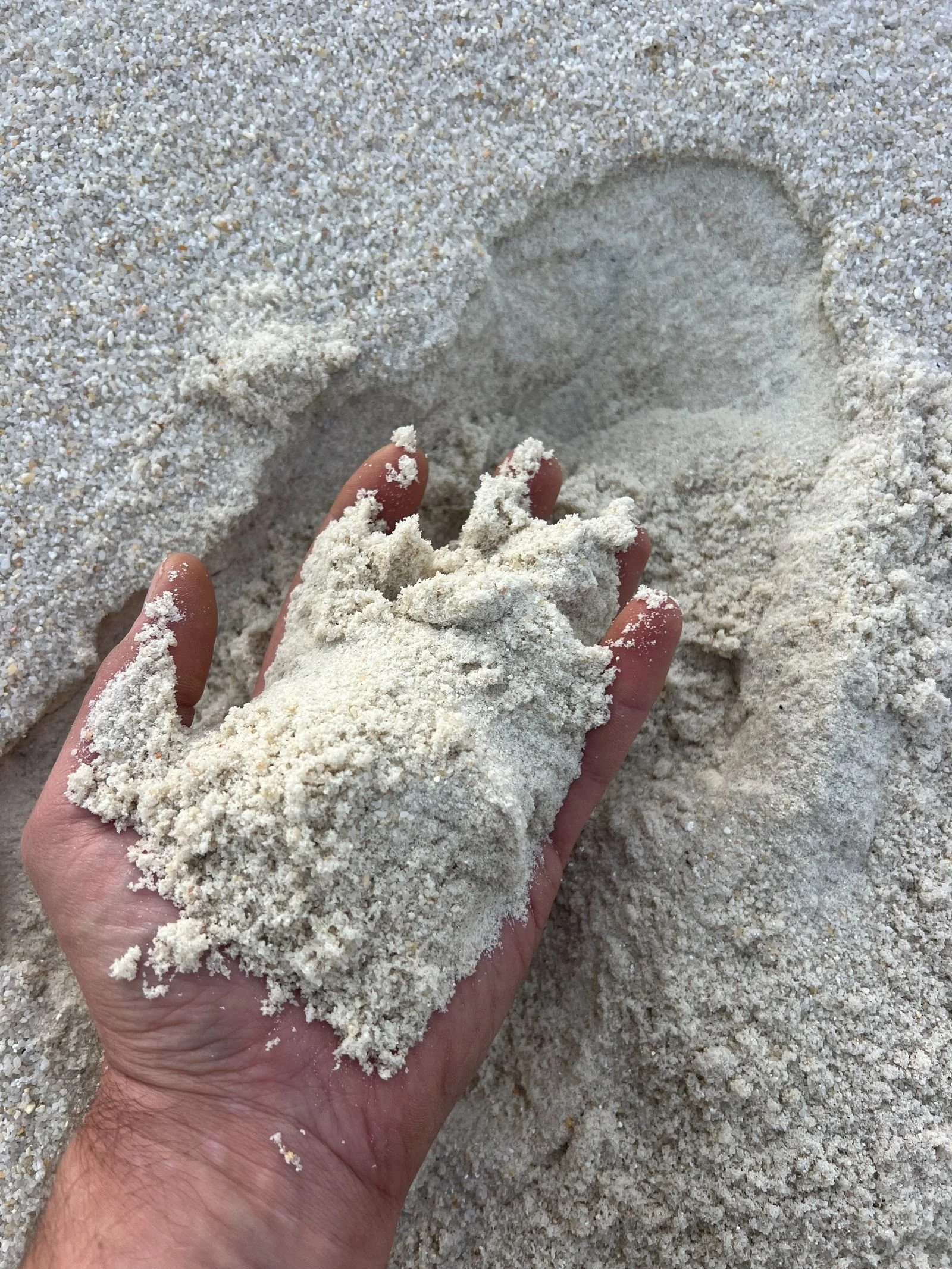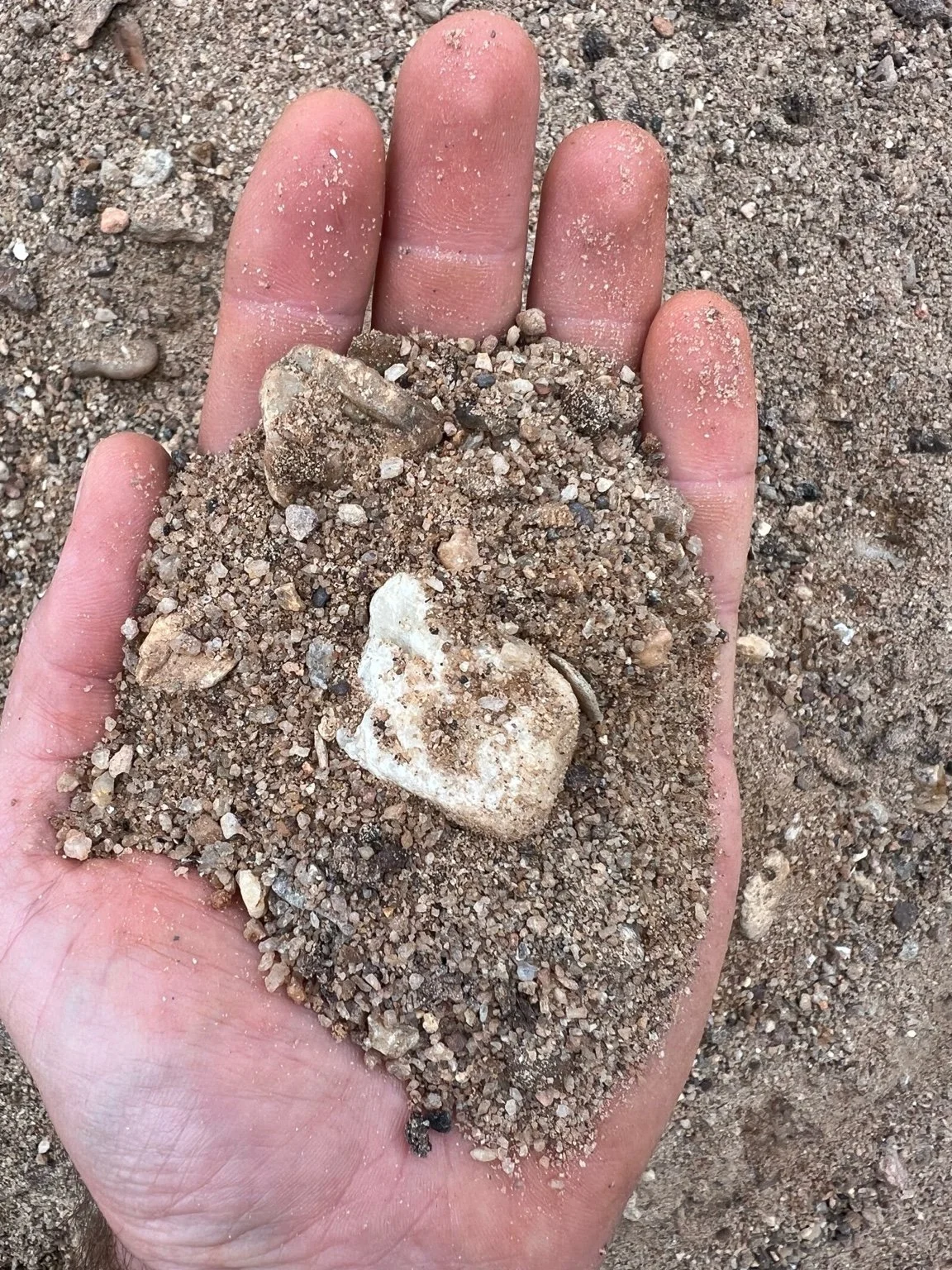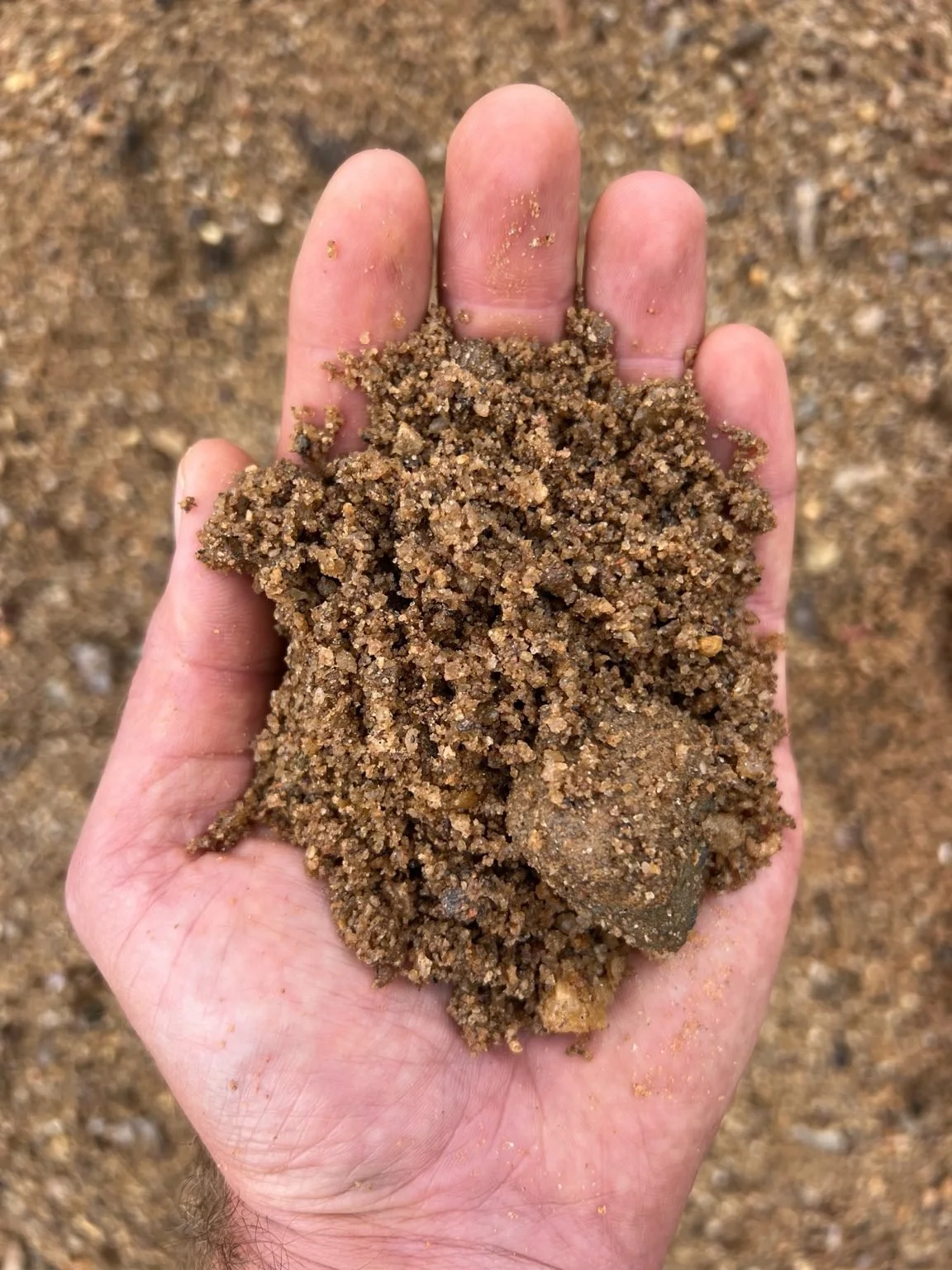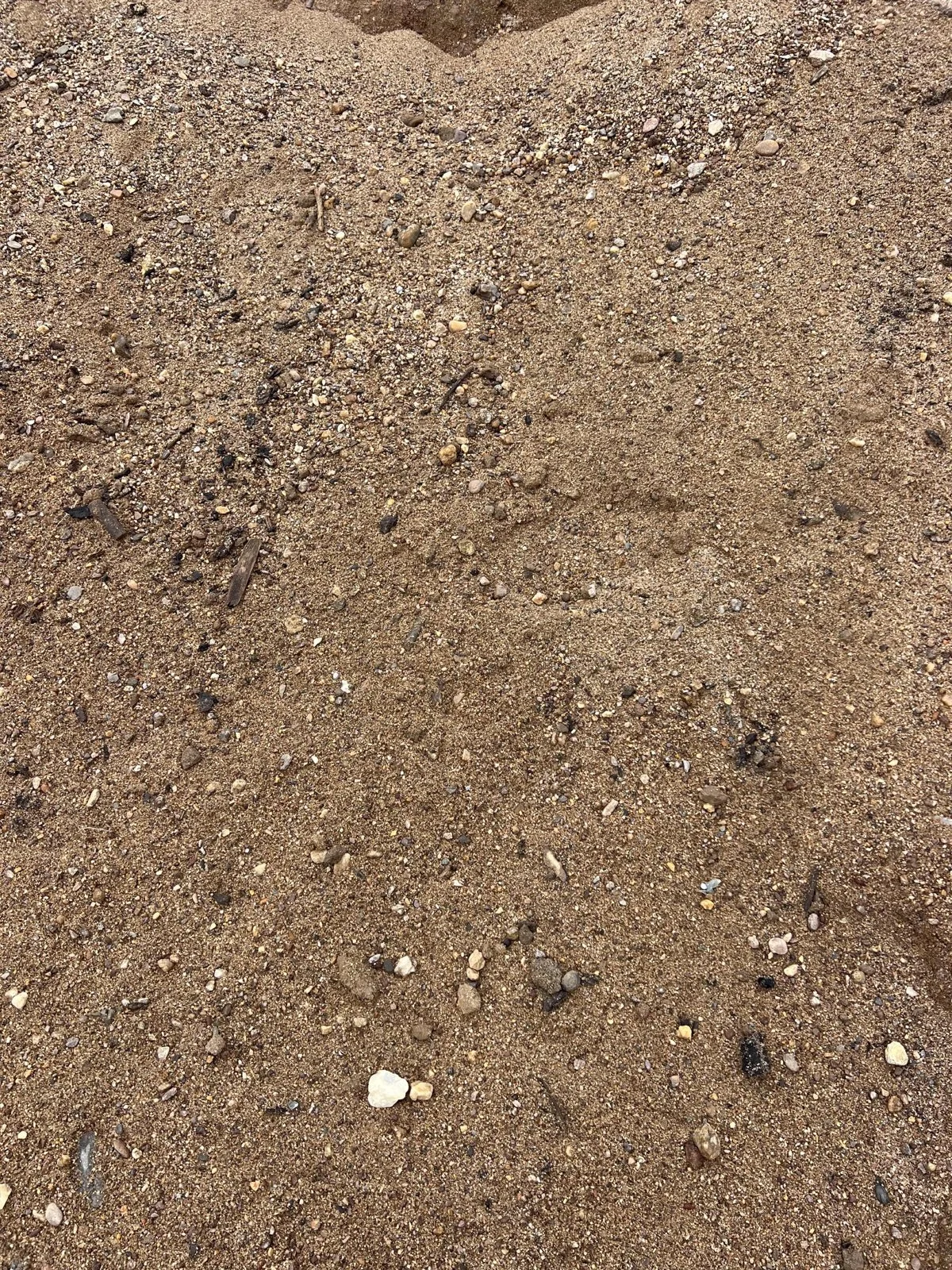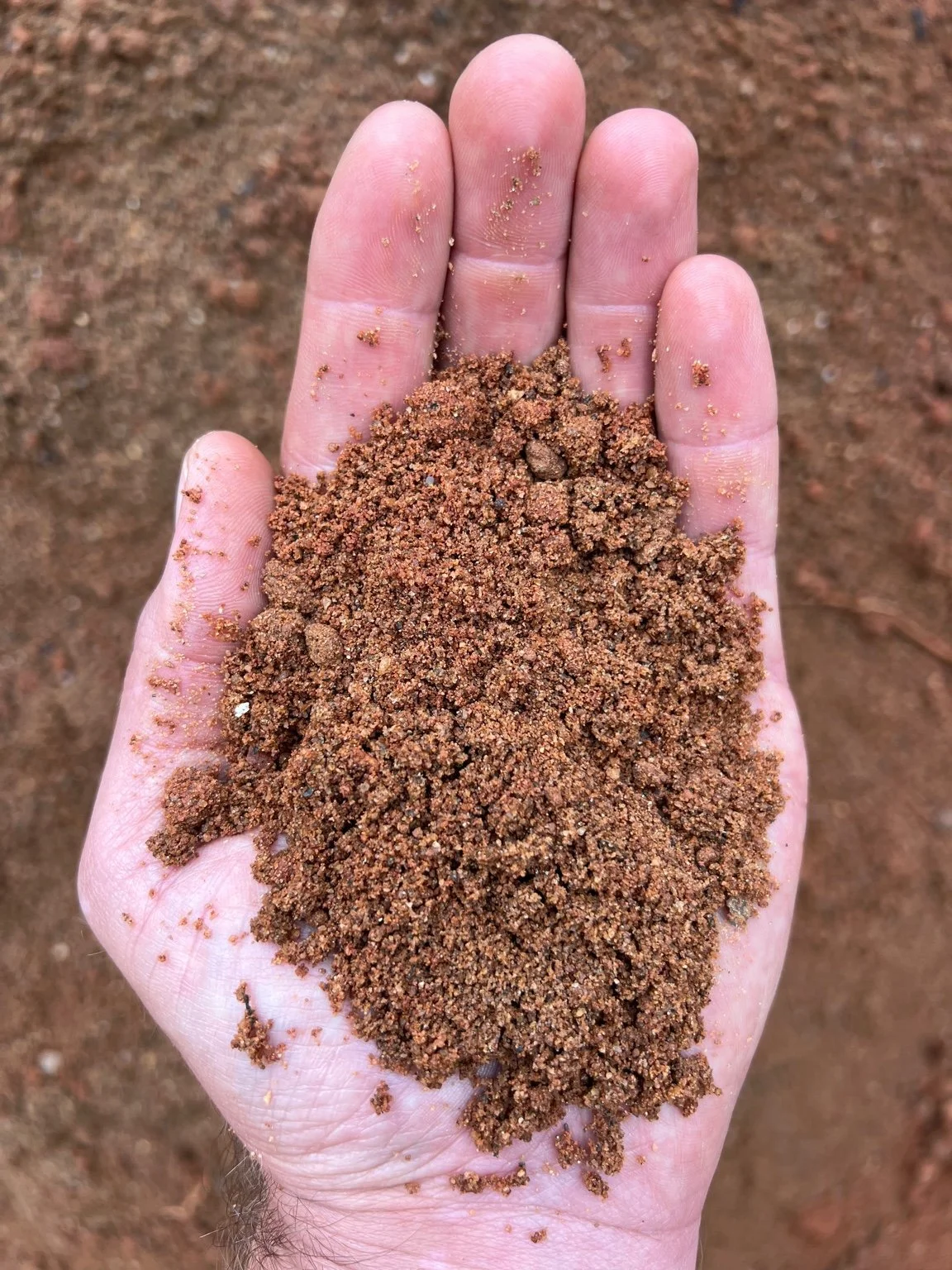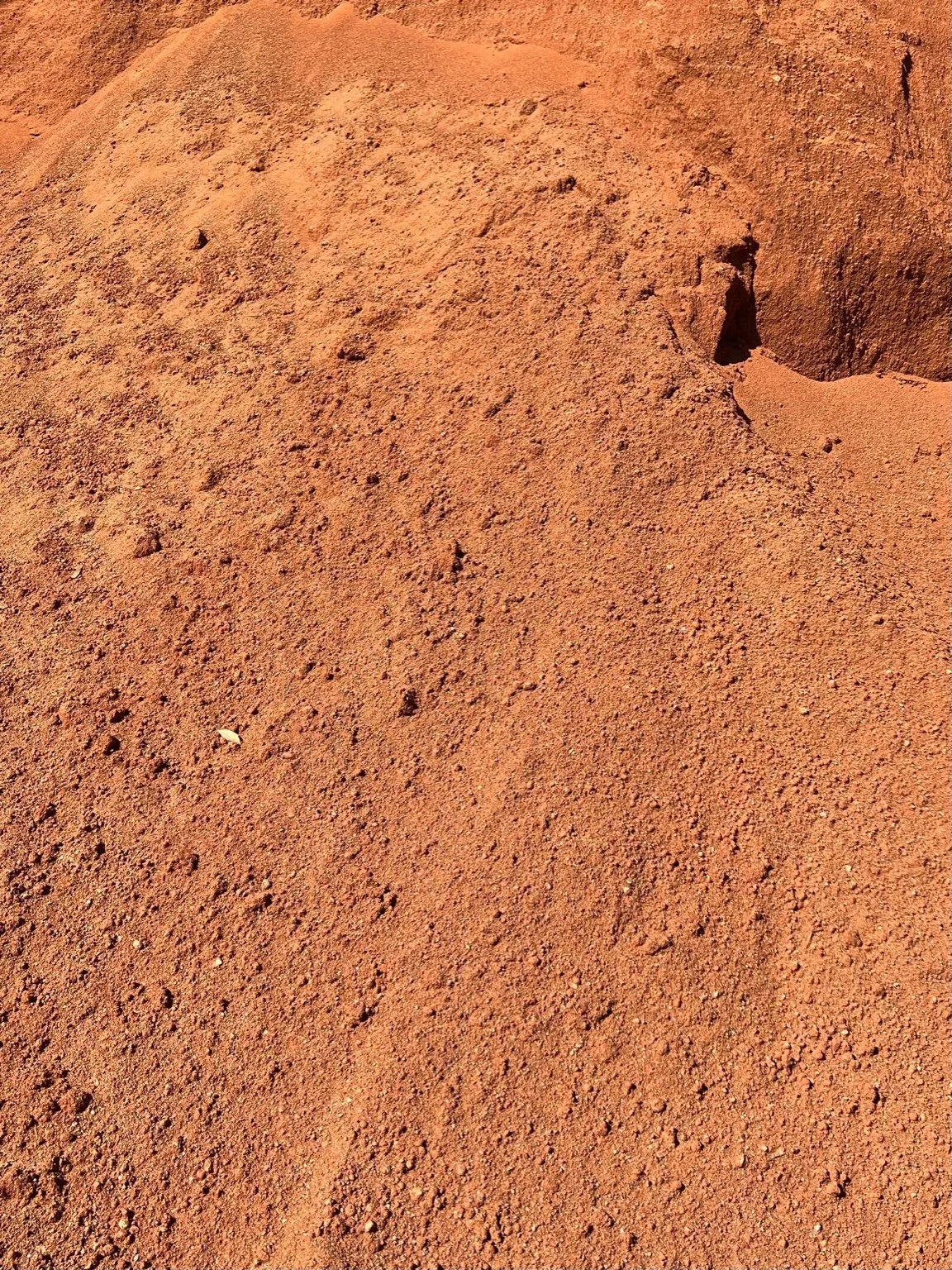How Much Screened River Sand Do I Need?
Assumes Screened River Sand ≈ 22 ft³ per ton. Coverage varies with moisture and compaction.
Sales tax (varies by county) is added at checkout.
About Screened River Sand
Screened River Sand is a natural aggregate taken from local riverbeds and screened to remove oversized material. Unlike washed sand, it retains some natural fines, silt, or organic particles. This makes it softer underfoot than coarse river sand, which is why some equestrian facilities in the Upstate use Screened River Sand alone or blend it with washed river sand for horse arenas.
For septic and drainage projects, screened sand is sometimes used, though SCDOT specifications and many local contractors require washed concrete sand when pipe bedding or structural performance is critical. For recreational areas such as volleyball courts or children’s play yards, Clemson Extension notes washed masonry sand provides a cleaner, more uniform surface, but screened sand remains a budget-friendly option for large coverage areas.
Because it is unwashed, customers should expect natural color variation and occasional organic material such as small twigs or pebbles that passed through screening.
Local Applications – Screened River Sand
Horse Arenas & Riding Rings: Sometimes used alone or blended with washed river sand for a softer, natural footing.
Drainage Bedding: Can be used as utility bedding, though washed sand is often required for spec jobs.
Recreational Surfaces: Play yards or informal volleyball courts where a softer surface is desired at lower cost.
Backfill & Leveling: Lightweight fill for projects where compaction is less critical.
Coverage & Density – Screened River Sand
Density: ~22 cubic feet per ton
Coverage: ~100 sq ft/ton at 2″ depth; ~65–70 sq ft/ton at 3″ depth
Comparison to Other Materials
Washed River Sand (Concrete Sand): Cleaner, washed aggregate recommended by SCDOT for septic systems and pipe bedding.
Masonry Sand: Fine, washed white sand used for mortar, stucco, and play surfaces (Clemson Extension recommends it for cleaner recreational areas).
Fill Sand: Cheaper option, but not screened and may contain stones, shells, or debris.
Screenings (Stone Dust): Crushed granite fines that compact into a hard surface; sometimes used under pavers. Not suitable for horse arenas because it compacts too tightly and creates footing that is unsafe for horses.
Local Performance – Screened River Sand in Upstate SC
Horse Facilities: Some arenas in Spartanburg and Greenville counties mix screened and washed river sands to balance cost and softness.
Residential Drainage: Homeowners sometimes use it in trench backfill, though washed sand is more effective for consistent drainage.
Budget-Friendly Recreation: Chosen for community play yards where appearance is less critical than coverage.
FAQ – Screened River Sand (Upstate South Carolina)
What is the difference between screened and washed river sand?
Screened River Sand is mechanically sifted to remove large debris but not washed. Washed River Sand is cleaned of fines and organics. SCDOT requires washed concrete sand for structural and drainage jobs.
Can Screened River Sand be used in horse arenas?
Yes, some arenas in the Upstate use it alone or blended with washed sand for softer footing. For professional facilities, Clemson Extension recommends washed concrete sand for consistency.
Is Screened River Sand good for septic systems?
No. Washed concrete sand is typically required by code for septic drain fields.
Can it be used for volleyball courts or play yards?
Yes, though washed Masonry Sand provides a cleaner, uniform surface. Clemson Extension suggests washed masonry sand for play courts.
Does Screened River Sand compact?
It compacts loosely but does not form a firm base like Crusher Run.
What is the coverage per ton?
~100 sq ft at 2″ depth; ~65–70 sq ft at 3″ depth.
What’s the minimum order?
15–20 tons per order only; free delivery starts at 15+ tons.
Will it contain twigs or pebbles?
Yes, occasional small twigs or pebbles may pass through the screening process.
Is it safe for pets and animals?
Yes, it is a natural sand, but because it is unwashed it may retain fines or small organic matter.
Can weeds grow through screened sand?
Over time, yes—especially in damp or shaded areas.
Disclaimer
Natural products vary in size, color, and texture. Screened River Sand is not washed and may contain fines, twigs, or pebbles. Quantities are approximate. See our Disclaimer & Terms of Delivery page for full details.

